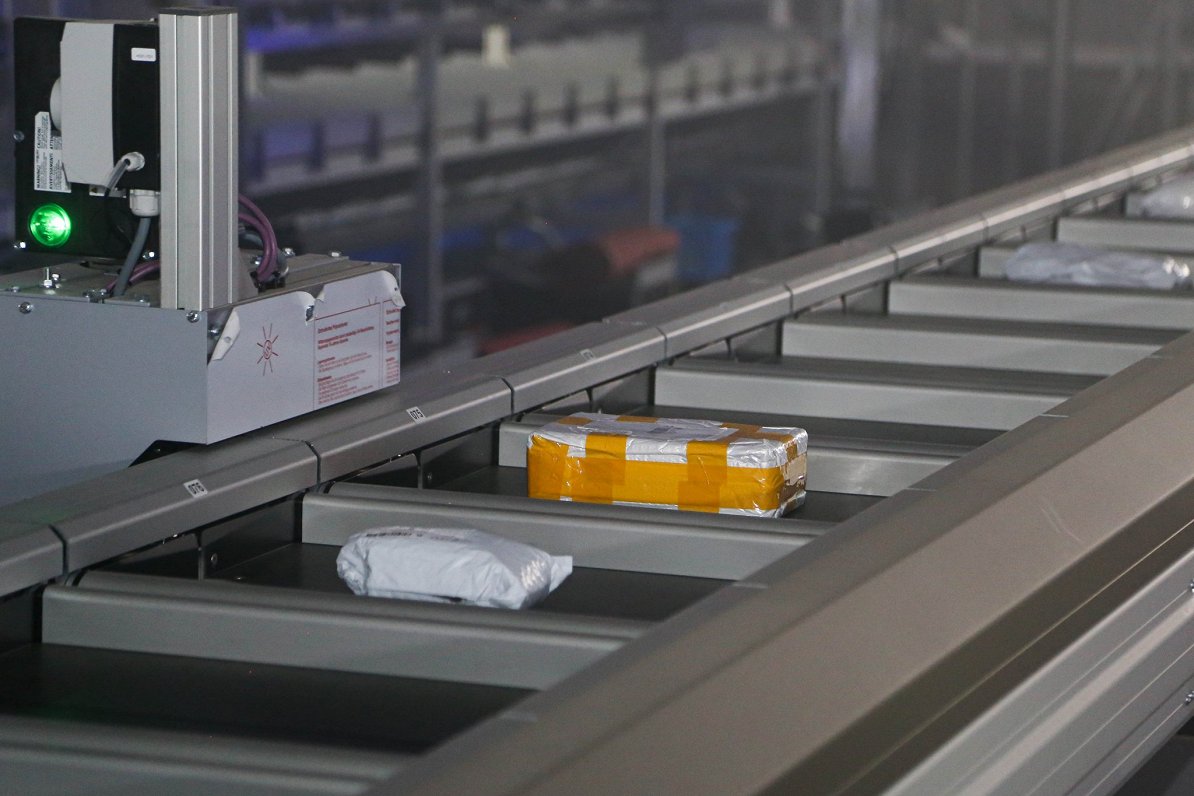The head of the delivery company DPD Latvija, Jānis Grants estimated the increase in shipments as "dramatic".
Since the start of the pandemic 150 new employees have been recruited by the company, an expanded fleet and additional storage facilities have been leased.
Like Omniva, which has increased the number of parcel machines due to Covid-19, it is also being done by the DPD, and shipments can now be received in 305 machines and gas stations. The number of parcel machines has increased four times, while the number of shipments from the Baltic and Europe increased by 120%.
“Traditionally people order electronics, but the spotlight this season is exactly clothing. In the wake of Brexit, people are increasingly choosing internet shops that are in Europe and not in the UK. We also see a certain correlation with the €500 allowance paid to children. People spend this money and buy trampolines, greenhouses, slides and larger goods – garden furniture and equipment, grills. These pose the biggest challenges, because more people, transport, rooms are needed to supply big shipments,” Grants said.
If DPD international shipments are delivered to Europe in trucks, the postal companies shall carry consignments by passenger aircraft.
Gundega Vārpa, spokeswoman for Latvijas Pasts, said that last year the number of mail delivered had doubled, with an increase of 55% in the first months of this year, so the company had to think about alternative types of delivery.
"We had trucks, ships to Australia, chartered cargo flights to and from Britain last December, both by shipping our shipments and Royal Mail. The number of aircraft flights from Riga airport is also gradually recovering and the number of destinations is expanding. But of course, the situation remains fragile – a very large number of shipments are coming at the same time.
"If, in the past, flights were scheduled and flown daily at a specified time, then now the weekly bulk of shipments would come in one day. And departments have to message a lot of people at the same time and issue a lot of shipments at the same time," said Vārpa.
The large volume of shipments is also shown by queues on the street near the postal offices. Vārpa explained that there are also national restrictions: 15 square meters per customer should be allocated, so the post offices use fewer registers than before the pandemic. In order to address this situation, “Latvijas Pasts” is currently expanding the existing network of 62 parcel machines.
Economic expert at the Luminor bank Pēteris Strautiņš estimated that the habit of shopping on the Internet would continue after the pandemic.
"People will go to work in offices more than now, but less than ever. Retail will have a similar situation. People would be shopping on the Internet or via mail less than they are at the moment, but more than they had done before. Because habits have changed – people have found ways to buy goods more cost-effective and cheaper," Strautiņš said.
International express shipments are also supplied by DHL. This year, the number of shipments increased by 40%. The company will open a new sorting center at Rīga airport in the summer of this year and then shipments are planned to travel by aircraft every night.






























